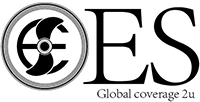美国禁止日本食品进口

当地时间13日上午,日本政府召开内阁会议,正式决定将东京电力公司福岛第一核电站内储存的核废水排放入海。日本政府的这一决定在全世界范围内引起一片哗然。
但美国国务院却发布了一则声明,支持日本政府排污入海决定。美国国务卿布林肯甚至在社交媒体上“感谢”日本。
但是,据美国食品药品管理局(FDA)此前更新的第99-33进口警示,一系列日本食品仍被禁止进入美国...
据FDA公告,涉及的日本食品包括:牛奶、黄油、干奶制品;鱼、海胆、蛤蜊等海洋生物制品;肉、肉制品和家禽(牛肉,公猪,熊,鹿,鸭,野兔和野鸡产品);蔬菜、柑橘柚类水果奇异果等等,涉及青森县、福岛县、宫城县、长野县、枥木县等多地。
自2011年以来,中国海关已禁止进口来自日本辐射区10个都县的食品、食用农产品及饲料。该10个都县为:福岛县、群马县、栃木县、茨城县、宫城县、新潟县、长野县、琦玉县、东京都、千叶县。(2018年11月,中国海关宣布解除新潟大米进口限制。)
韩国政府也对日本核废水排放入海的决定表示强烈抗议。韩国目前严禁进口福岛和其附近8个县的水产品,并每年对在国内养殖的40种海鲜进行2000次以上的放射性检测,计划今年将检测次数增至3000次以上。
另据韩联社报道,韩国各家大型超市计划继续不销售日产海鲜。易买得、乐天玛特、Homeplus等韩国大型超市已从2011年起停售日产海鲜,此前在韩国较为畅销的日产海鲜全部被韩国产或其他国家进口产品所取代。
